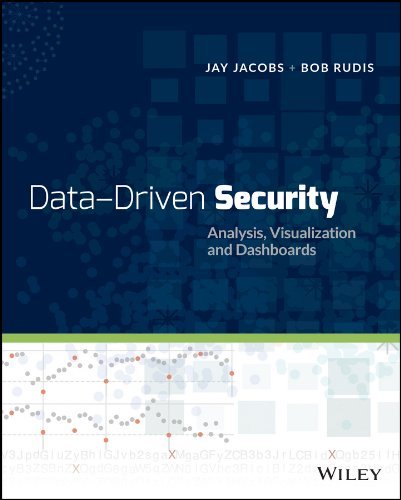Many thanks to all who attended the talk @jayjacobs & I gave at @Secure360 on Wednesday, May 15, 2013. As promised, here are the [slides](https://dl.dropboxusercontent.com/u/43553/Secure360-2013.pdf).
We’ve enumerated quite a bit of non-slide-but-in-presentation information that we wanted to aggregate into a blog post so you can vi[sz] along at home. If you need more of a guided path, I strongly encourage you to take a look at some of the free courses over at [Coursera](https://www.coursera.org/).
For starters, here’s a bit.ly bundle of data analysis & visualization bookmarks that @dseverski & I maintain. We’ve been doing (IMO) a pretty good job adding new resources as they come up and may have some duplicates to the ones below.
People Mentioned
– [Stephen Few’s Perceptual Edge blog](http://www.perceptualedge.com/) : Start from the beginning to learn from a giant in information visualization
– [Andy Kirk’s Visualising Data blog](http://www.visualisingdata.com/) (@visualisingdata) : Perhaps the quintessential leader in the modern visualization movement.
– [Mike Bostock’s blog](http://bost.ocks.org/mike/) (@mbostock) : Creator of D3 and producer of amazing, interactive graphics for the @NYTimes
– [Edward Tufte’s blog](http://www.edwardtufte.com/tufte/) : The father of what we would now identify as our core visualization principles & practices.
– [Nathan Yau’s Flowing Data blog](http://flowingdata.com/) : Making visualization accessible, practical and repeatable.
– [Data Stories Podcast](http://datastori.es/) : Yes, you can learn much about data visualization from an audio podacst (@datastories)
– [storytelling with data](http://www.storytellingwithdata.com/) (@storywithdata) : Extremely practical blog by Cole Nussbaumer that will especially help folks “stuck” in Excel
– [Jay’s blog](http://beechplane.wordpress.com/)
– [My {this} blog](http://rud.is/b)
Tools Mentioned
– [R](http://www.r-project.org/) : Jay & I probably use this a bit too much as a hammer (i.e. treat every data project as a nail) but it’s just far too flexible and powerful to not use as a go-to resource
– [RStudio](http://www.rstudio.com/) : An *amazing* IDE for R. I, personally, usually despise IDEs (yes, I even dislike Xcode), but RStudio truly improves workflow by several orders of magnitude. There are both desktop and server versions of it; the latter gives you the ability to setup a multi-user environment and use the IDE from practically anywhere you are. RStudio also makes generating [reproducible research](http://cran.r-project.org/web/views/ReproducibleResearch.html) a joy with built-in easy access to tools like [kintr](http://yihui.name/knitr/).
– [iPython](http://ipython.org/) : This version of Python takes an already amazing language and kicks it up a few notches. It brings it up to the level of R+RStudio, especially with it’s knitr-like [iPython Notebooks](http://ipython.org/ipython-doc/dev/interactive/htmlnotebook.html) for–again–reproducible research.
– [SecViz](http://secviz.org/) : Security-centric Visualization Site & Tools by @raffaelmarty
– [Mondrian](http://www.theusrus.de/Mondrian/) : This tool needs far more visibility. It enables extremely quick visualization of even very large data sets. The interface takes a bit of getting used to, but it’s faster then typing R commands or fumbling in Excel.
– [Tableau](http://www.tableausoftware.com/) : This tool may be one of the most accessible, fast & flexible ways to explore data sets to get an idea of where you need to/can do further analysis.
– [Processing](http://processing.org/) : A tool that was designed from the ground up to help journalists create powerful, interactive data visualizations that you can slipstream directly onto the web via the [Processing.js](http://processingjs.org/) library.
– [D3](http://d3js.org/) : The foundation of modern, data-driven visualization on the web.
– [Gephi](https://gephi.org/) : A very powerful tool when you need to explore networks & create beautiful, publication-worthy visualizations.
– [MongoDB](http://www.mongodb.org/) : NoSQL database that’s highly & easily scaleable without a steep learning curve.
– [CRUSH Tools by Google](https://code.google.com/p/crush-tools/) : Kicks up your command-line data munging.

Thank you so much.
Very Informative and helpful.